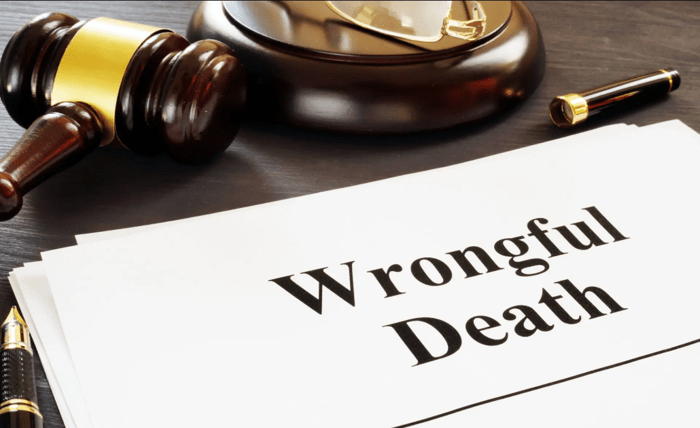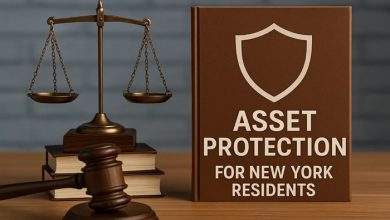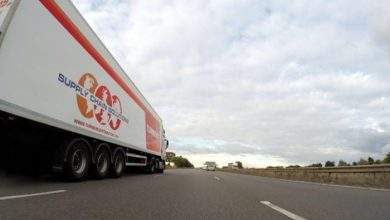
Wrongful death claims arise when an individual’s life is lost due to the negligence, recklessness, or intentional actions of another party. These claims seek to provide justice and compensation to the surviving family members who suffer emotional, financial, and sometimes physical hardships as a result of the loss. Understanding the typical scenarios that lead to wrongful death claims can help individuals recognize when legal action may be appropriate. We will explore the most frequent causes behind these tragic events, shedding light on the circumstances that commonly give rise to such claims.
Typical Situations Leading to Wrongful Death Claims
- Motor Vehicle Accidents
One of the most prevalent causes of wrongful death claims involves motor vehicle accidents. These incidents include car crashes, motorcycle accidents, truck collisions, and pedestrian-related crashes. Negligent driving behaviors such as speeding, driving under the influence, distracted driving, reckless overtaking, or failure to obey traffic signals often lead to fatal outcomes. Commercial vehicle accidents, especially those involving large trucks, can be particularly devastating due to the size and weight of the vehicles involved. In cases where another party’s disregard for traffic laws or safe driving practices causes a fatal accident, families have grounds to pursue wrongful death claims to address their losses and seek accountability. Consulting a Michigan wrongful death lawyer you can trust can be crucial in navigating the complexities of such claims and ensuring that the family’s rights are fully protected.
- Medical Malpractice
Deaths caused by medical malpractice happen when healthcare providers fail to deliver the standard level of care expected in medical practice, resulting in fatal injuries or complications. This category encompasses surgical errors, misdiagnoses, medication mistakes, delayed treatment, and birth injuries, among others. Healthcare providers are entrusted with patients’ lives, and any deviation from accepted medical standards that leads to death can be considered wrongful. Families often face enormous emotional and financial burdens after such losses, as wrongful death claims can help recover costs related to medical bills, lost income, and emotional distress.
- Workplace Accidents
Fatal accidents occurring on the job represent another common source of wrongful death claims. These deaths may result from unsafe working conditions, lack of proper safety equipment, insufficient training, or employer negligence in maintaining a safe environment. Industries such as construction, manufacturing, and mining often carry heightened risks, but workplace fatalities can happen in virtually any occupation. When an employer or third party’s failure to comply with safety regulations leads to a fatal incident, survivors may seek legal recourse to hold the responsible parties accountable and to obtain financial support for the loss.
- Defective Products
Fatal injuries caused by defective or dangerous products can also result in wrongful death claims. These products might include automobiles with faulty components, medical devices that malfunction, pharmaceuticals with harmful side effects, or consumer goods that pose safety hazards. Manufacturers, distributors, and retailers must ensure that the products they offer are safe for use. When defects go unnoticed or ignored, and a death occurs as a consequence, families may pursue claims against those responsible for bringing the unsafe product to market. This process involves demonstrating that the product’s defect directly caused the fatality.
- Premises Liability
Premises liability refers to injuries or deaths that occur due to hazardous conditions on someone’s property. Property owners and managers are obligated to maintain safe premises and warn visitors of any known dangers. Fatal accidents such as slip and fall incidents, drownings in poorly maintained pools, or inadequate security leading to violent acts can all fall under this category. When negligence in property maintenance or security contributes to a death, the victim’s family may have grounds to file a wrongful death claim against the party responsible for the property’s upkeep.
- Criminal Acts and Intentional Violence
Wrongful death claims may also arise from criminal acts or intentional violence, such as homicide, assault, or manslaughter. While criminal charges address the punishment of the wrongdoer, wrongful death claims focus on civil compensation for the victim’s family. These claims hold the perpetrator or other liable parties accountable for the consequences of their actions beyond criminal penalties. Surviving family members can seek damages for their emotional suffering, loss of companionship, and financial support that the deceased would have provided.
- Aviation and Transportation Accidents
Fatal accidents in aviation and other transportation sectors beyond typical road traffic incidents also give rise to wrongful death claims. Airplane crashes, train derailments, and maritime accidents often involve complex investigations to determine liability and accountability. Such incidents may be caused by mechanical failure, human error, inadequate maintenance, or regulatory violations. Given the scale and impact of these tragedies, families pursue wrongful death claims to hold airlines, operators, or manufacturers responsible for negligence or misconduct contributing to the fatal event.
Wrongful death claims stem from a variety of tragic circumstances where negligence, recklessness, or intentional acts cause the loss of life. Understanding the common causes, ranging from vehicle accidents and medical errors to defective products and criminal violence, provides insight into the various situations where legal action may be necessary. These claims serve not only to seek financial recovery for survivors but also to promote accountability and safer practices in numerous industries and environments. Recognizing these causes empowers families and individuals to take appropriate steps when confronted with such devastating losses.




